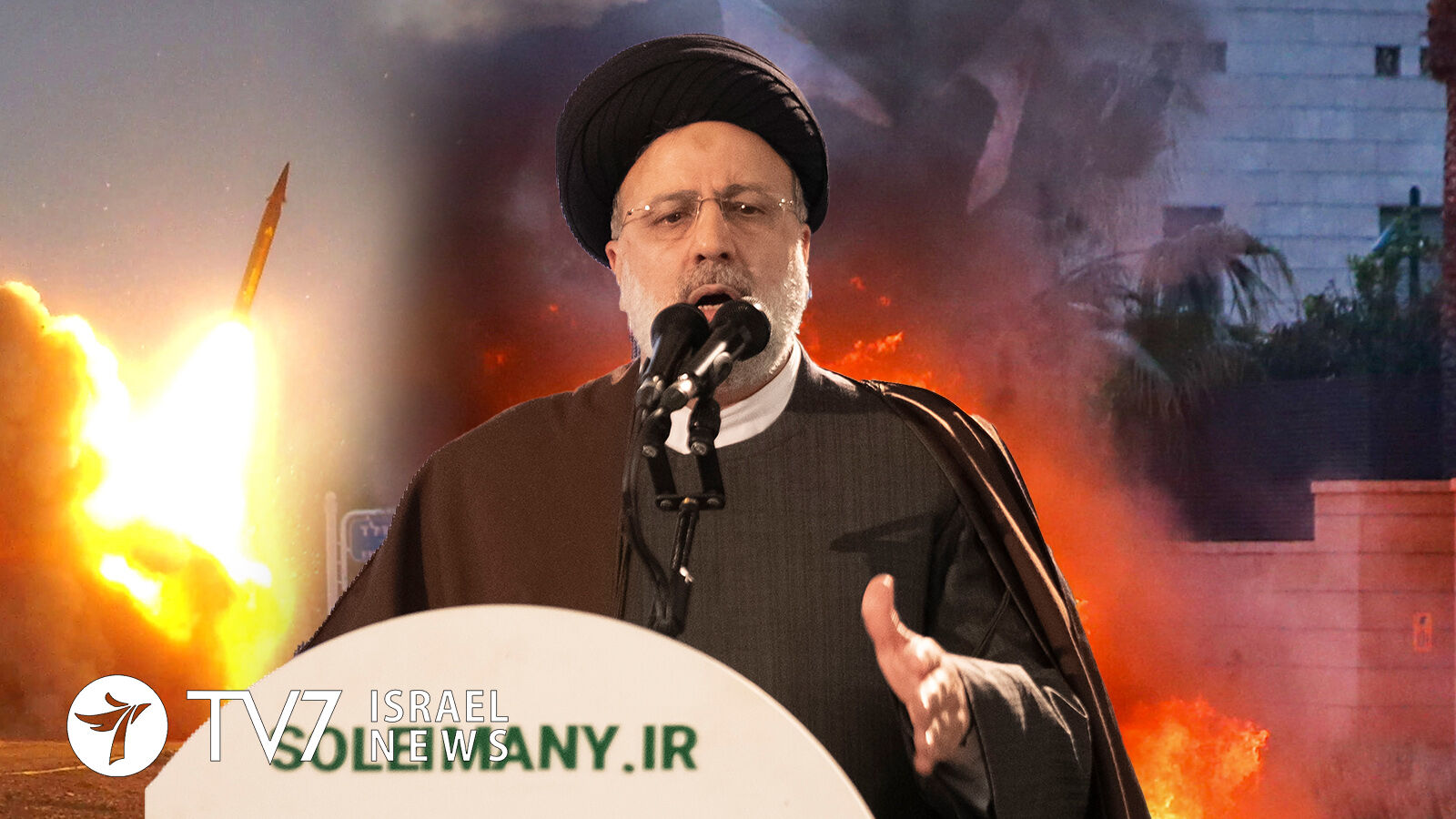Iranian President Ebrahim Raisi made the threat during a a televised speech during celebration of the country’s “Army Day.”
By Jonathan Hessen and Erin Viner
“The Zionist regime (Israel), you should know that … if you take the slightest move against our nation, our armed forces will target the heart of the Zionist regime,” vowed the hardline leader, a close confidante of Supreme Leader Ayatollah Ali Khamenei.
Iranian troops marched in front of the podium where Raisi stood alongside military officers, as helicopters flew overhead and parachutists dropped down over a parade area near the tomb of the country’s founder Ayatollah Ruhollah Khomeini. Missiles, armored personnel carriers, unmanned surveillance aircraft and small submarines were also featured during the procession.
“Iran‘s army used the opportunity of sanctions very well to empower itself, and our military industries are now in the best shape,” boasted Raisi.
The Iranian leader’s remarks against Israel echo those by head of the Islamic Revolutionary Guards Corps (IRGC) Quds Force Brigadier General Esmail Qaani last week.
“Wherever we identify a Zionist threat, we will harshly confront them, they are too small to confront us,” said the commander, according to the semi-official Nour News agency.
He went on to pledge Iranian support any group that fights the “Zionist regime” and added that “the destruction of this regime is gaining ground.”
“Wherever this criminal regime (Israel) has wanted to show its face, the Islamic order has announced to them that if any violation to the interests of the order takes place anywhere in the world [we will retaliate], and we know where you are very well. One example is Erbil. In Erbil, many of the people who lived next to them did not know that this place was a Mossad base,” said Qaani, whose unit is in control of the IRGC foreign operations.
In March, Tehran targeted what it called “secret Israeli bases” during a missile attack on Iraq’s northern Kurdish regional capital of Erbil. Iranian officials proclaimed the assault was meant to avenge Israeli air strikes that killed Iranian military personnel in Syria.
It is important to note that Qa’ani’s rhetoric was reported on 14 April, just hours before unidentified aircraft reportedly launched an aerial strike that destroyed a Quds Force near Damascus. Syria immediately blamed Israel for the attack, while the IDF Spokesperson’s Unit neither confirmed nor denied.
The latest threats from Tehran come amid its stalled talks with world powers in Vienna to revive the 2015 Joint Comprehensive Plan of Action (JCPOA). The negotiations were suspended last month over the unresolved issue of whether the United States might remove the IRGC from its blacklist of Foreign Terrorist Organizations, as demanded by Tehran.
Washington and Tehran have been engaged in indirect talks for more than a year to salvage the pact, which restricted Iranian nuclear development in exchange for relief from economic sanctions. Former US President Donald Trump withdrew from the JCPOA in 2018 and re-imposed punitive economic measures against Tehran, after which the Islamic Republic blatantly breached the deal’s limits on its atomic program.
Israel, which the Islamic Republic refuses to recognize, says it will not accept Iran becoming “a nuclear threshold state.” Israeli leaders have repeatedly warned that Jerusalem will not be bound by any nuclear deal with Iran and could eventually take unilateral action against its nuclear sites.
Iran has long accused Israel of several attacks on facilities linked to the program and killing Iranian nuclear scientists. Israel has neither denied nor confirmed the allegations.
